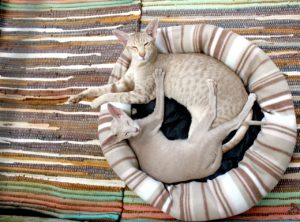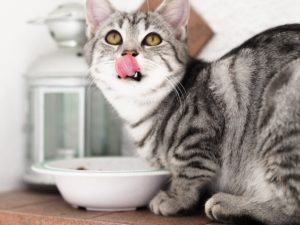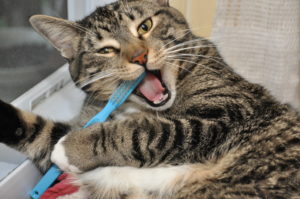If this is the first time you’re researching diarrhea in cats as a cat partner, consider yourself lucky. Like humans, cats deal with their fair share of indigestion and gastrointestinal problems. They may eat something wrong, may not drink enough water, whatever the issue is, cats experience diarrhea, constipation, and more.
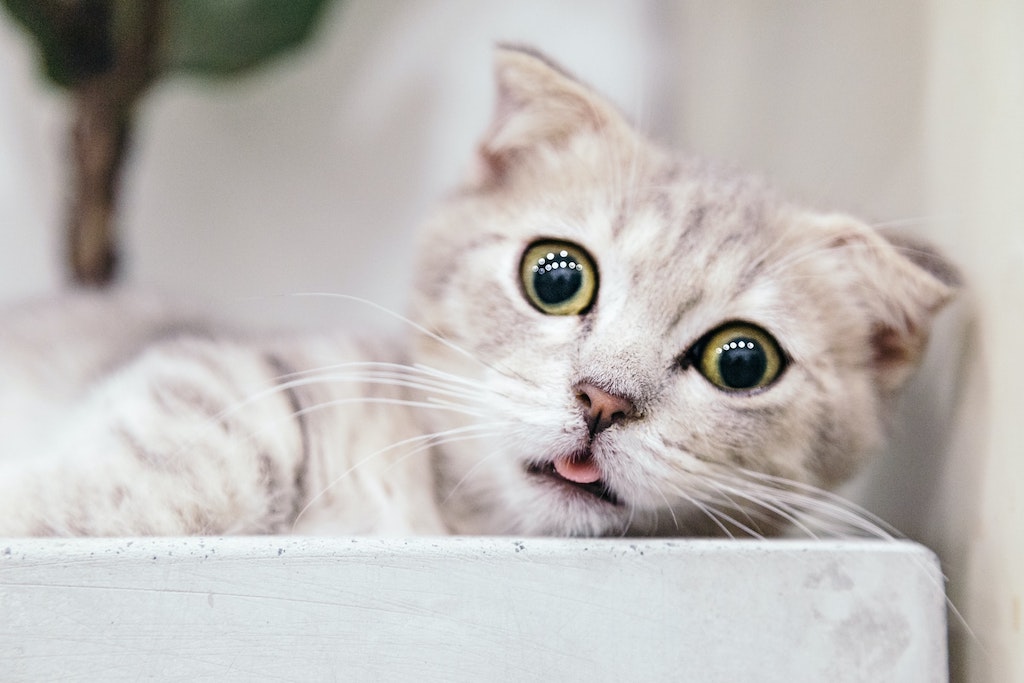
However, diarrhea is more of a problem, since as a cat partner, you’re the one who has to deal with their litter. It also doesn’t help that considering how simple their diet is, it’s not that easy to determine the cause of their indigestion is.
Nonetheless, as a responsible cat partner, you must stay on top of your game. And that means getting into the nitty-gritty of your cat’s gut and any problems it may face.
How to Deal with Diarrhea in Cats?
Diarrhea in cats is common and, in some cases, can last for days or even weeks. Other times, they’ll have an episode once and return to their regular bowel movement the next time your cat uses the litter box.
Diarrhea is not an issue. However, if you have a senior cat or a little nugget of a kitten, be cautious. Diarrhea means that your cat defecates loose stool, which means watery stool. If your cat uses the litter 2–3 times, that diminishes the water content they have in their body, thus dehydrating them. Again, for a regular cat, you can always feed them water and glucose one way or the other.
But if your cat is too old or too young, that could cause dangerous problems.
What are the Causes of Diarrhea in Cats?
The most common cause of diarrhea in cats is a change in their daily diet. Intolerance or food allergies lead to gastrointestinal reactions. However, other health causes lead to diarrhea as well, such as:
- Colitis
- Intestinal parasites, i.e., worms
- Inflammatory bowel disease
- Pancreatic disease
- Hypothyroidism
- Cancer
- Bacterial or viral infection
- Stress
- Medication or antibiotics
- Liver disease
Keep in mind, diarrhea is not an illness or a disease. But it is a symptom of a much more significant health issue.
Cats also often get diarrhea when they consume foreign substances, such as plants, leaves, flowers, even any product you may have lying around. Since the cat’s stomach is sensitive, that causes a bad reaction. But, if you know your cat hasn’t consumed anything like that or if you have cat-friendly plants, it’s better that you take your cat to the veterinarian right away, since you’ve already eliminated the most obvious source.
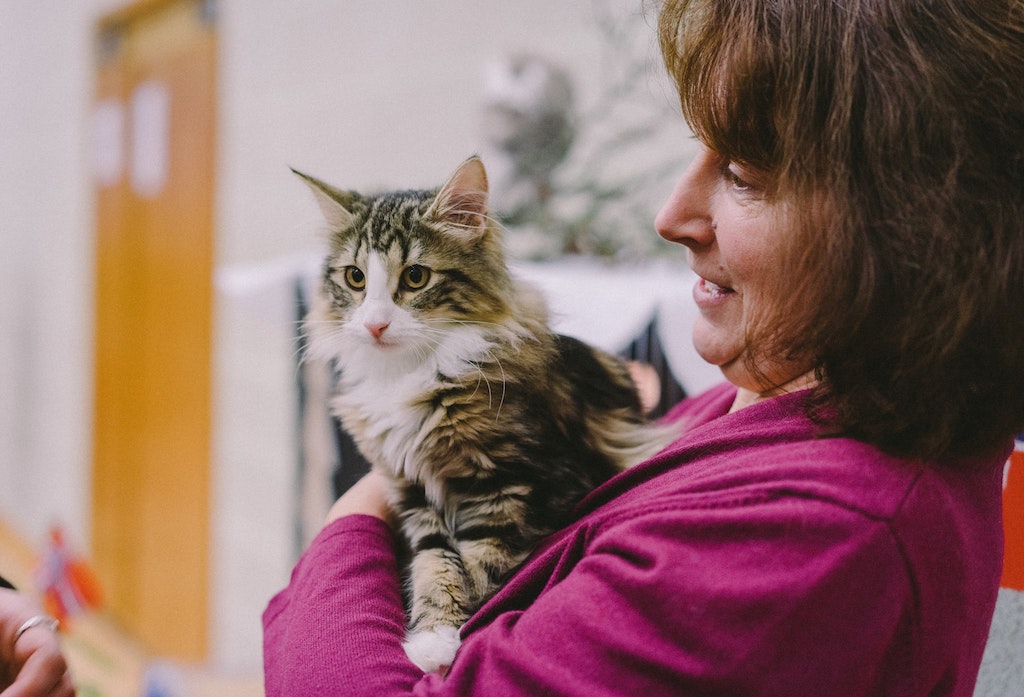
Should I Call the Vet for Cat Diarrhea?
As we said, cats can sometimes get diarrhea, but their stomach straightens itself out by the time their next bowel movement comes by. But, if your cat keeps getting diarrhea each time they go to the litter box, then yes, you should call the veterinarian. You may not notice it, but continuous diarrhea weakens your cat considerably. They may start shaking, become lethargic, may not drink water, and even refuse food. And that leads to much bigger problems.
Nevertheless, even if your cat doesn’t show any such symptoms, but continues to have diarrhea, check your veterinarian for any hidden problems your four-legged friend may have. We know cats like to hide any signs of their illnesses. Don’t let their aloofness fool you.
When Should You Be Worried?
Let’s say your cat has a loose bowel movement only once. Check their stool for worms, blood, or mucus. Alongside, take note of their behavior when using the litter box. If your cat is using it with increased frequency, straining to do so, and if they are having accidents around the house, be concerned.
Get your cat to the vet for a checkup as soon as possible. Think back to the days before your cat began getting diarrhea. Did they experience a loss of appetite? Was your cat vomiting? And was it showing signs of weight loss?
You may not even realize that your cat is sick until you think about it. If your cat’s diarrhea is explosive or profuse and dark in color that it looks bloody and tarry, your cat may be experiencing a health emergency.
How Will the Vet Check for Diarrhea in Your Cat?
After a proper physical examination, your veterinarian will check your cat’s medical history for any previous incidences. But, to be sure, your vet will also opt for the following procedures:
- Blood test and fecal exam
- X-ray
- Ultrasound
- Gastrointestinal tests
- Colonoscopy or endoscopy
Suppose they don’t find any accurate results. In that case, your veterinarian may also use a food trial or medication trial to determine if your cat reacted to a particular ingredient or medicine.
How to Treat Diarrhea in Cats?
Depending on your cat’s condition, your veterinarian may use medication and treatments to solve the issue.
They may prescribe antibiotics or parasite treatments to flush out whatever the problem is out of their system. But if the vet concludes that the diarrhea is a symptom of something more significant, such as hypothyroidism, they will start your cat on a series of medications to treat the underlying issue first. That will most likely take care of diarrhea in the process.
What You Can Do To Prevent Diarrhea in Cats
We know that, more often than not, diarrhea in cats occurs because of something they eat. However, sometimes, it’s not their fault they do so.
Keep in mind, a cat’s stomach is sensitive. They require a special diet, clean water, and meals without herbs, spices, and whatever we use to flavor our food. So, if you’ve been sneaking your cat table scraps, leaving their water as-is for several days, not washing their bowls after each use, or using cheap cat food, you are to blame.
Your cat is your responsibility and requires as much care as a human. When dealing with your cat, treat them as you would yourself. Your cat deserves high-quality food, clean water, clean dishes, and a well-understood diet. Take the time to learn to manage your cat’s care and diet.
Encourage water intake, and keep your cat hydrated, even if it means filling their bowls with beef or chicken broth. Also, ask your vet about probiotics and healthy bacteria. If your cat experiences diarrhea because of stress or antibiotic therapy, they will need something like a probiotic supplement to return their intestine’s bacterial population to normal.
Finally, do not use any anti-diarrheal medication. Unless your veterinarian explicitly recommends the medicine, please do not use it on your cat. These medications can be hazardous for your cat’s health and require a particular dosage per the cat’s weight.
A Note on Fiber
If your cat gets diarrhea, even with basic food, you’ll want to search for substitutes that are marked for sensitive stomachs.
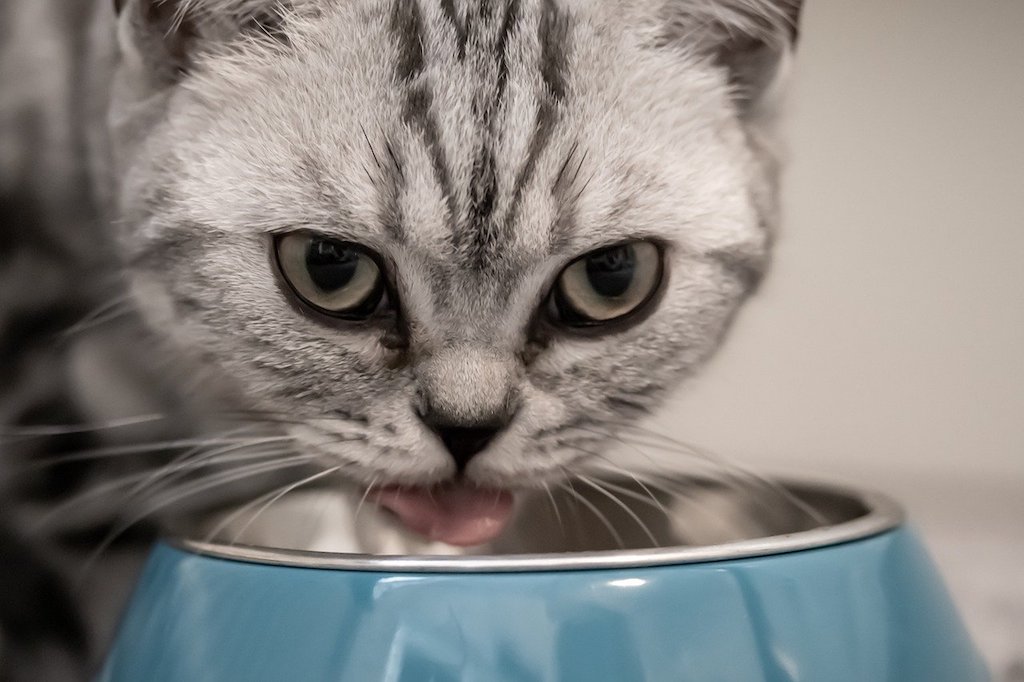
Food for such cats is low in fiber, making them easy to digest and gives them enough crude fiber, so their stool is solid enough. If needed, you can also provide fiber supplements to your cats, such as psyllium husk or canned pumpkin. 1–2 TSP a day will give their stomachs enough fiber to make their stools solid but easy to pass.
Final Thoughts
Diarrhea in cats typically resolves after some days of care, treatment, and lots of love.
But, if your cat continues to get bouts of diarrhea, don’t wait. We know that diarrhea is a common symptom of many health conditions. So, make an appointment with the best veterinarian you can find, and keep an eye on whatever your cat eats or licks, even if it’s dust.
You never know what might trigger your cat’s next episode!


